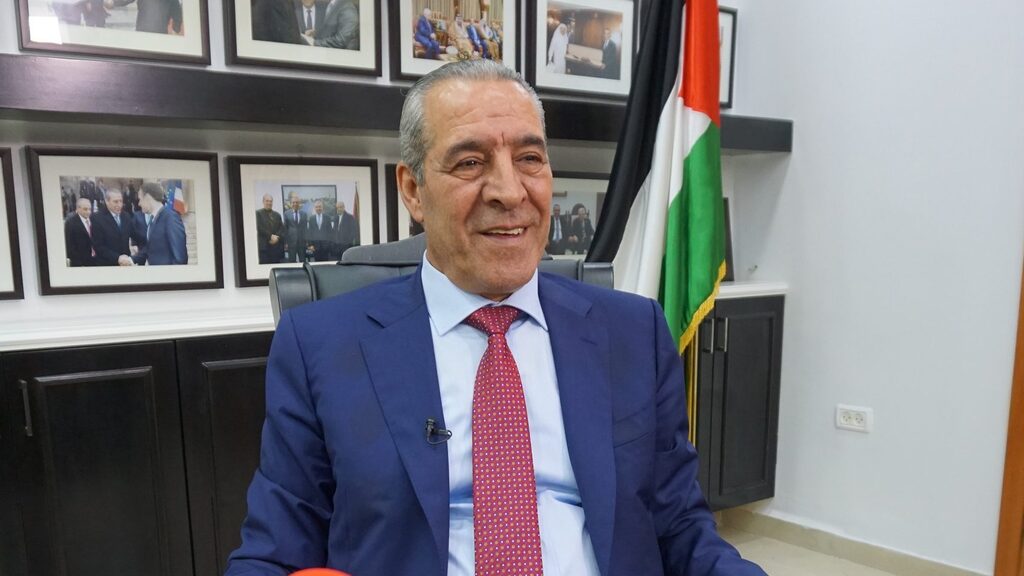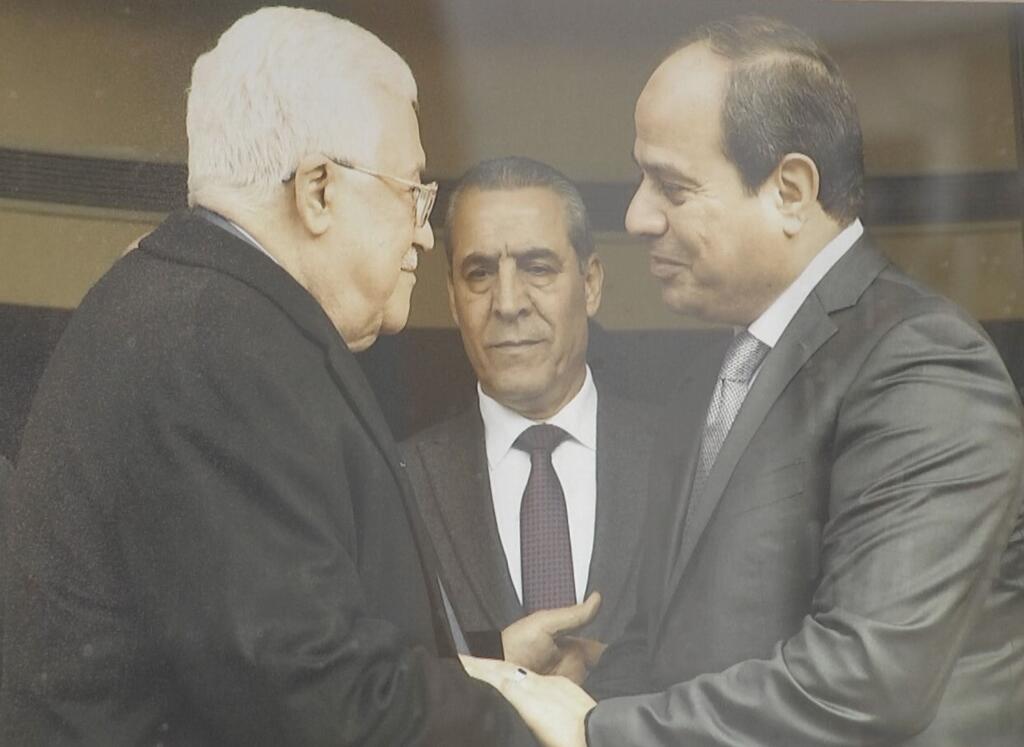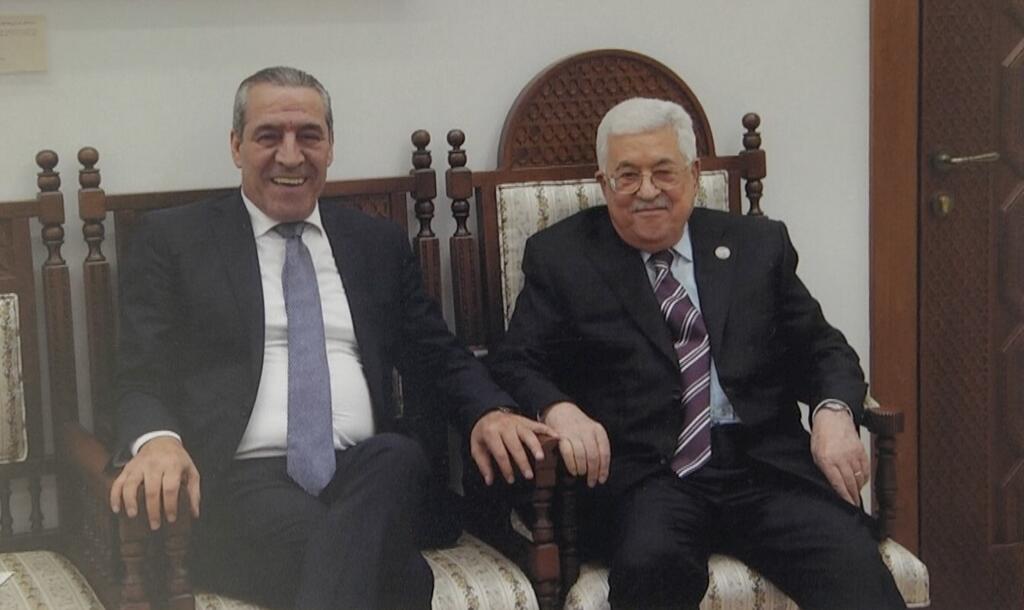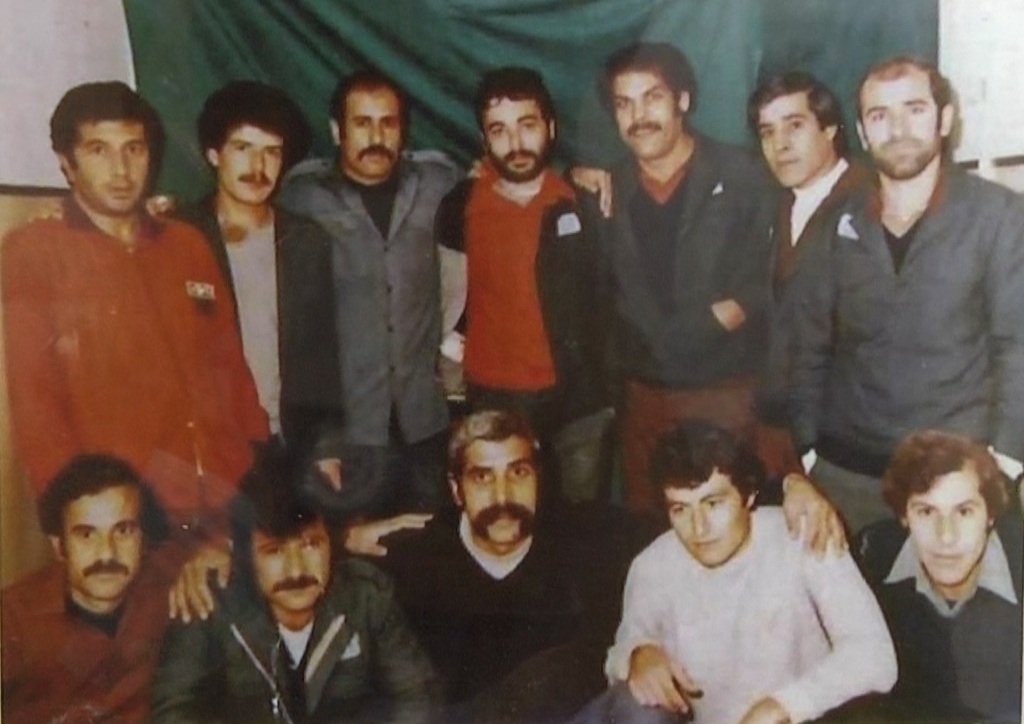Civil Affairs Minister Hussein Al-Sheikh is one of the leading figures in the Palestinian Authority hierarchy and is one of President Mahmoud Abbas’ closest advisers. Al-Sheikh is the point person to Israel in all security matters and chairs the dialogue between the Palestinian government and the United States administration.
Al-Sheikh, who rarely gives public statements and has not given a full interview in some years, sat down in his Ramallah office for a wide-ranging conversation that included the current political situation, the next steps in jumpstarting the Israeli-Palestinian peace process, and the American role in the conflict and internal security issues.
4 View gallery


Palestinian Authority Civil Affairs Minister Hussein Al-Sheikh in his office in Ramallah
(Photo: The Media Line)
Born in Ramallah in 1960, Hussein Al-Sheikh is the longtime head of the General Authority of Civil Affairs. As head of the Coordination and Cooperation Committee, he is the point person for contacts with Israel regarding civilian matters in the Palestinian territories. He also represented the Palestinian side on the Trilateral Gaza Reconstruction Committee following the 2014 Gaza War.
He’s a member of the Palestinian National Council, the PLO Central Council, and the Fatah Central Council, and chair of the dialogue with the US administration. From 1978 to 1989, Al-Sheikh was imprisoned in Israel.
Although it is too early to tell, do Palestinians look optimistically right now to the new Biden Administration?
When this new administration came, the administration of President [Joe] Biden, and after the phone call that took place between President Biden and President Abbas, I think President Biden spoke about very important principles with President Abbas that we might consider to be a type of road map for us and for the Americans.
This concerns how it is possible for us to move forward from now. He spoke about the status quo on Haram al-Sharif [Temple Mount], Sheikh Jarrah, the residents of East Jerusalem, stopping settlement expansion, and stopping the unilateral measures.
We agree on all these principles with President Biden; it will be a road map for us and the Americans with the Israeli side. And because of this, the new American administration gives us hope.
We started now building a relationship and restoring the relationship with President Biden’s administration. We are in daily contact with the administration. There are committees formed between us and the new leadership. They have already started working.
Has President Biden’s appointment of Hady Amr, the deputy assistant secretary for Israel and Palestinian affairs, made a difference already?
I think so. Since his appointment, we have had a number of calls, contacts and meetings. The new administration has a broad understanding of the nature of the Palestinians’ present situation and Mr. Hady Amr is playing a very positive role in his constant contact between himself and the Israeli government.
We agreed in principle that we need first to change the atmosphere between us and Israel. We spoke about the bilateral dialogue with the new administration and the Palestinians. At the same time, we spoke about the trilateral dialogue between the USA, Israel and the Palestinians.
We agreed to go in two parallel lines. I believe that this path is fruitful in terms of creating new facts and a new atmosphere, helping everyone to enter into a new phase. We agreed to start with what are called CBMs – confidence-building measures – between us and the new administration and between us and Israel.
The second stage is to find the framework for the nature of conflict resolution between Israel and the Palestinians, which is or should be focused mainly on international legitimacy and legal decisions that refer to two states for two peoples living in peace and security in a stable, cooperative and prosperous environment between the two states.
A Palestinian state and an Israeli state. This is the plan that we agreed on with the new administration and we are working on it right now.
4 View gallery


L-R: Palestinian President Mahmoud Abbas, Civil Affairs Minister Hussein Al-Sheikh and Egyptian President Abdel Fattah el-Sisi meeting in Cairo in 2017
(Photo: Courtesy)
You spoke about confidence-building measures and there’s been an erosion of trust on both sides. What are some of the very important facts on the ground that are being asked that will help to change the status quo?
Maybe what is required from us are some actions from our side and at the same time, it is also necessary for the American administration to undertake some actions from their side. For example, there is a law that was passed in 1987 in the US Congress, stating that the Palestine Liberation Organization is still considered a terrorist organization.
How come this law still remains and how does it make any sense at all? Israel doesn’t consider the PLO a terrorist organization.
On the other hand, there is a law in America called the Taylor Force Act. This law punishes the Palestinian Authority for supporting prisoners, which is said to incite violence.
We said to the American administration that we are ready to discuss all these matters in a bilateral committee and we can also establish a trilateral committee with Israel, the Americans and the Palestinians all taking part.
If there is incitement on the Palestinian side, is there no incitement on the Israeli side? For example, the Lehava organization in Israel publicly calls for “death to Arabs.” Is this considered a terrorist or non-terrorist organization? Is it an organization that practices racial discrimination and racism and calls for the death of others?
If there is incitement, let us set up a trilateral committee made up of the Israelis, Americans and Palestinians to discuss these issues.
What is also required from the Americans is there must be change. And many CBMs also need to come from the side of Israel.
I noted the Paris Protocol. It is 26 years old. It does not make any sense to continue this economic protocol, which is restricting Palestinian commercial and economic development.
Israel is also controlling the issue of water, the issue of Area C in the West Bank, which constitutes 63% of the total West Bank land area. Israel is not permitting the Palestinians to establish any rural project in Area C. Does this make sense?
There is the issue of the Palestinian prisoners, sick people needing medical care, women, the elderly. I can also mention in the context of the same topic: the institutions of the Palestinian Authority in Jerusalem, which remain closed. The list of CBMs is long. In that regard, we have now started talks with the Israelis and also between us and the Americans.
One of the questions that we’ve heard from the Americans as well as from Israelis has to do with Gaza and the bifurcation between the West Bank and Gaza. What do you say to Israelis and Americans concerned that if elections were held tomorrow, Hamas could win?
Unfortunately, the Palestinian situation has become more complicated since 2007. After Hamas took over the Gaza Strip by force even though Hamas won in the democratic election of the parliament in 2006, we handed over the government to Hamas as it won the election.
But unfortunately, what happened in 2007 happened and this had great repercussions on the internal Palestinian situation. So we had long conversations with Hamas and the rest of the Palestinian organizations to reach a formula for reconciliation between us and Hamas and the other Palestinian organizations to reunify the Palestinian geography, which includes the West Bank and the Gaza Strip and Jerusalem.
But, unfortunately, so far up until this moment, this ongoing discussion did not achieve the desired goal.
Months ago, we decided to go to elections hoping it to be the shortest way to solve the internal Palestinian problem and that the same time to strengthen the democracy in Palestinian political life.
We believe in pluralism and free expression and the smooth transfer of power by peaceful means. This is the basis and foundation of the Palestinian political system and this is the ambition of the upcoming Palestinian state.
Unfortunately, we faced a major obstacle, which is the issue of Jerusalem and the refusal of Israel to hold the elections in East Jerusalem as it did in 1996, 2005 and 2006. Thus, unfortunately, it put an obstacle in the way of holding these elections and this caused a big problem, disabling the election process, whether we are talking about the presidential or the legislative parliamentary elections.
We are still looking for a solution to this issue. I say frankly now if Israel would approve to hold the elections in East Jerusalem, the Palestinian president would issue a decree to hold the election immediately in east Jerusalem and the West Bank and Gaza Strip.
You work very closely with President Abbas. He’s not young. Does there need to be a change of guard? Do young people need to come in? Some have thrown your name into the ring.
I believe that Abu Mazen [Abbas] is among the most historic figures of the Palestinian people and founders of the Palestinian state from the 1950s until now. I was and still am wishing that the agreement with the Israeli side on the final status formula under Mahmoud Abbas’ presidency can be reached.
4 View gallery


Minister Hussein Al-Sheikh with Palestinian President Mahmoud Abbas
(Photo: Courtesy)
Because he has wisdom and it is my absolute belief that the path of the negotiations is the shortest and the closest path to the two-state solution and at the same time, Abbas has the historic legacy and leadership charisma that entitled him to sign the historic agreement between us and the Israelis.
Regarding the younger generation, I say yes. We believe completely that there is a necessity for leadership across the generations. May these new generations come forward to occupy important positions in the Palestinian political system – in the political, economic and social aspects.
You’ve been the lead liaison between Israel and the Palestinian Authority. Was there ever a time when you felt that if security cooperation wasn’t existing, what would happen if there wasn’t cooperation between Israel and the Palestinians despite the political situation?
Although Israel is an occupation force, talks with Israel and coordination with Israel are very essential to search for prospects for solutions between us.
The Israeli government controls all aspects of Palestinian life. It controls the air we breathe, the water we drink, the ability of our citizens to have movement, the people, the economy, crossings and borders, etc.
Thus, coordination with the Israeli government is a matter of fact and necessity. It is true that it is tiring and exhausting and sometimes we might pay the price on a personal level.
4 View gallery


Hussein Al-Sheikh (2nd right, top row) poses with other prisoners at Junaid Prison in the West Bank in 1984
(Photo: Courtesy )
Are you optimistic about the new Israeli government?
We are obliged to live with hope. We always need to maintain the feeling that today is better than yesterday, and that tomorrow will be better than today.
It is true that there is a wide gap in the views held among the partners taking part in the current government. The various parties making up the government are holding diverse opinions.
We are hoping for stability in this government and that this government will seriously seek to change the general atmosphere to an approach of more positive practical procedures that might restore the confidence between the Palestinians and the Israelis.
Change in the West Bank and in Jerusalem and the Gaza Strip is needed. We wish for the new government to take big steps forward in this matter to give hope to the Palestinian people and that the opportunity still exists for mutual understanding and to reach a solution between the Palestinians and the Israelis.
My personal opinion is that going forward, it could not be worse than the period of [Benjamin] Netanyahu’s rule in Israel.
Do you think we’ll be having this same conversation in five years?
No! I believe that every day brings change. We must believe that this change will come and that this change will be for the better, surely for the better.
I hope that in the next period, the situation will be different in a positive way.

